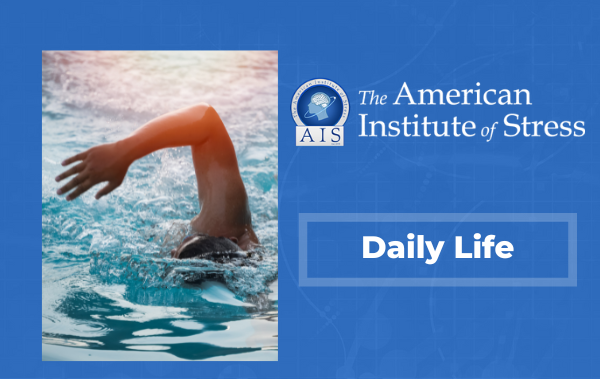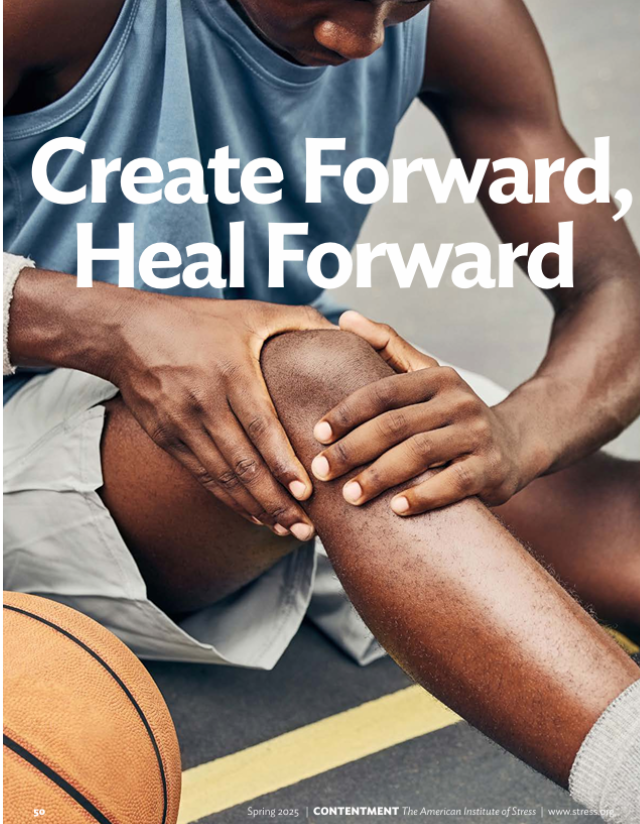*This is an article from the Summer 2022 issue of Contentment Magazine.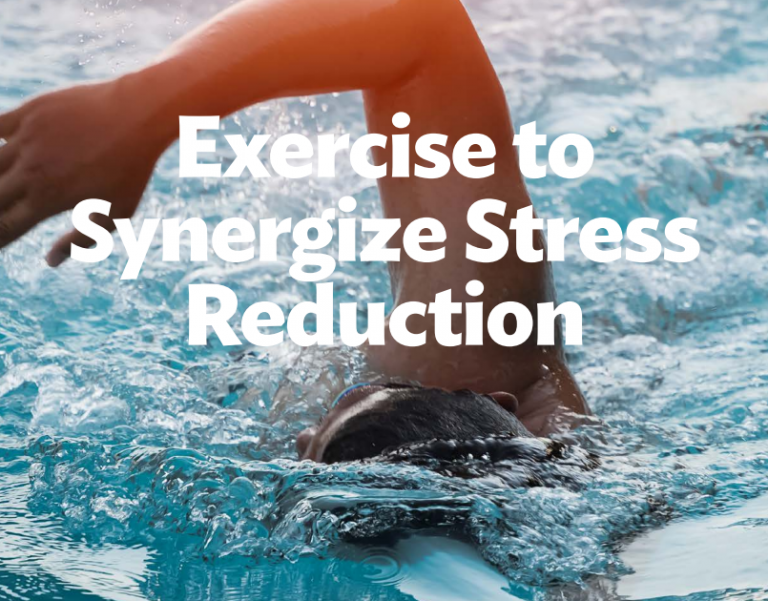
By Evian Gordon MD, PhD, FAIS
Founder and Chief Medical Officer Total Brain
Pat Dunn PhD, MS, MBA, FAHA
Program Director for Connected Heart Health
Jennifer Franklin
Founder of Totally Immune.com
Staying active has a synergistic effect on many factors that contribute to chronic stress resilience.1 In this article we point to the benefits of this synergy, some of their underlying mechanisms, and how to help ensure that you generate a new Exercise-Stress reduction “habit stacking” momentum.
There are so many virtues to moving your body. Some of the well-established benefits include:
- reducing the risk of chronic illness
- improving cognitive function
- weight control
- an efficient immune system
- decreasing inflammation
- improve social and emotional connections
One of the most powerful impacts of exercise is the reduction of stress. Even 5 minutes of exercise can take you from feeling overwhelmed to calm. Twenty minutes of dedicated movement a day could improve all areas of your physical and mental health.2
Synergy Benefits
Exercise and stress reduction together create a cascade of converging benefits that can positively impact the way you eat, your mental health, social connection and in-the-moment and long-term stress levels.
Your brain and body consist of many complex and dynamical systems, functions and networks that makes up you. When you engage in deliberate physical activity you reduce chronic stress, which in turn affects all the systems in your body and brain. The whole becomes stronger, more adaptive, less stressed, and more resilient.

Figure 1. Exercise reduces Stress and together they synergistically enhance the key aspects of wellbeing.
Your stress levels are controlled by thresholds. Every waking moment is a balance of thresholds. Having strategies to keep your stress thresholds in check keeps you healthy and on track to tackle life’s challenges. It’s well-established that eating poorly, not getting restorative sleep, inactivity and negativity are going to trigger a stress response. While it may seem overwhelming to try and manage every trigger of stress, exercise has the synergistic qualities to affect many of them in a positive way.
Synergy Mechanisms
Exercise and stress interact in a deeply physiological manner. Exercise itself is a stressor and initially increases your body’s adrenaline and cortisol, that makes your heartbeat faster, increases your breath rate, and can make you sweat. But the training effect of becoming more fit has the opposite effect. Your heart rate and blood pressure are lower, your breathing slows down, the stress chemicals are reduced, and most of all you feel more relaxed.
As soon as you start exercising, a number of other important chemical messengers are released throughout your brain and body. The most well-known are Endorphins. They are natural pain blockers that increase pleasure and improve sleep, which in turn reduces stress.
Lesser-known neurotransmitters, called Endocannabinoids, also play an important role in your brain and body when you’re working out. The euphoric feeling you get after a hard workout may result from endorphins and endocannabinoids working in tandem.
Endocannabinoids are thought to be responsible for the “runners high,” a euphoria with intense exercise. This chemical cocktail is expanded with an exercise-related release of dopamine, a pleasure and reward neurotransmitter, that also benefits sleep, mood, motivation, and pain.
New brain connections (“Neuroplasticity”), essential to learning, are also increased with exercise, especially in the hippocampus, where short term memory is converted into long term memory.3
The increase in heart rate, especially during vigorous exercise, helps trigger new blood vessel tributaries that increase oxygen supply to the brain. This improves all key brain capacities and to some extent, protects against cognitive decline.
Create Synergy Habits
Generating any new habit is more likely to happen when you have an evidence-based habit plan. For example: you can build an Exercise and Stress Reduction Habit using the Gordon 3-Step Habit Plan.4
Step 1. KNOW: What’s your Why/What/How readiness.
Step 2. ROUTINE: Build a new routine of using PARs (Prompts – Actions – Rewards) in a “30 Day Challenge”. Examples:
- Prompt: brushing my teeth (established habit)
Action: 10 squats (new exercise habit)
Reward: fist pump and say, well done - Prompt: drinking coffee (established habit)
Action: 3 min of deep breathing (new stress reduction habit)
Reward: Close my eyes and say, it’s great to be in the moment
Step 3. TRANSFER: After approximately 30 days, your new habit is well on its way to becoming a well-established behavioral habit supported by a new neural network.5 From day 31, the focus becomes transferring that habit into your daily life.
To make the habit stick even further:
- Take it One Step at a time. Start small and gradually build your level of activity. Try doing a little more each time. A little more can be a little harder, a little longer, or a little more often.
- Do the things you love. Exercise should be fun, so build your activity around fun things.
- You can deepen your new habit by increasing repetitions and improving your form.
The basics of exercise that drive benefits are well known. But the biggest gap is between Knowing and Doing! So, we end with a repeat of the exercise basics and a few reminder tips about “the doing.”
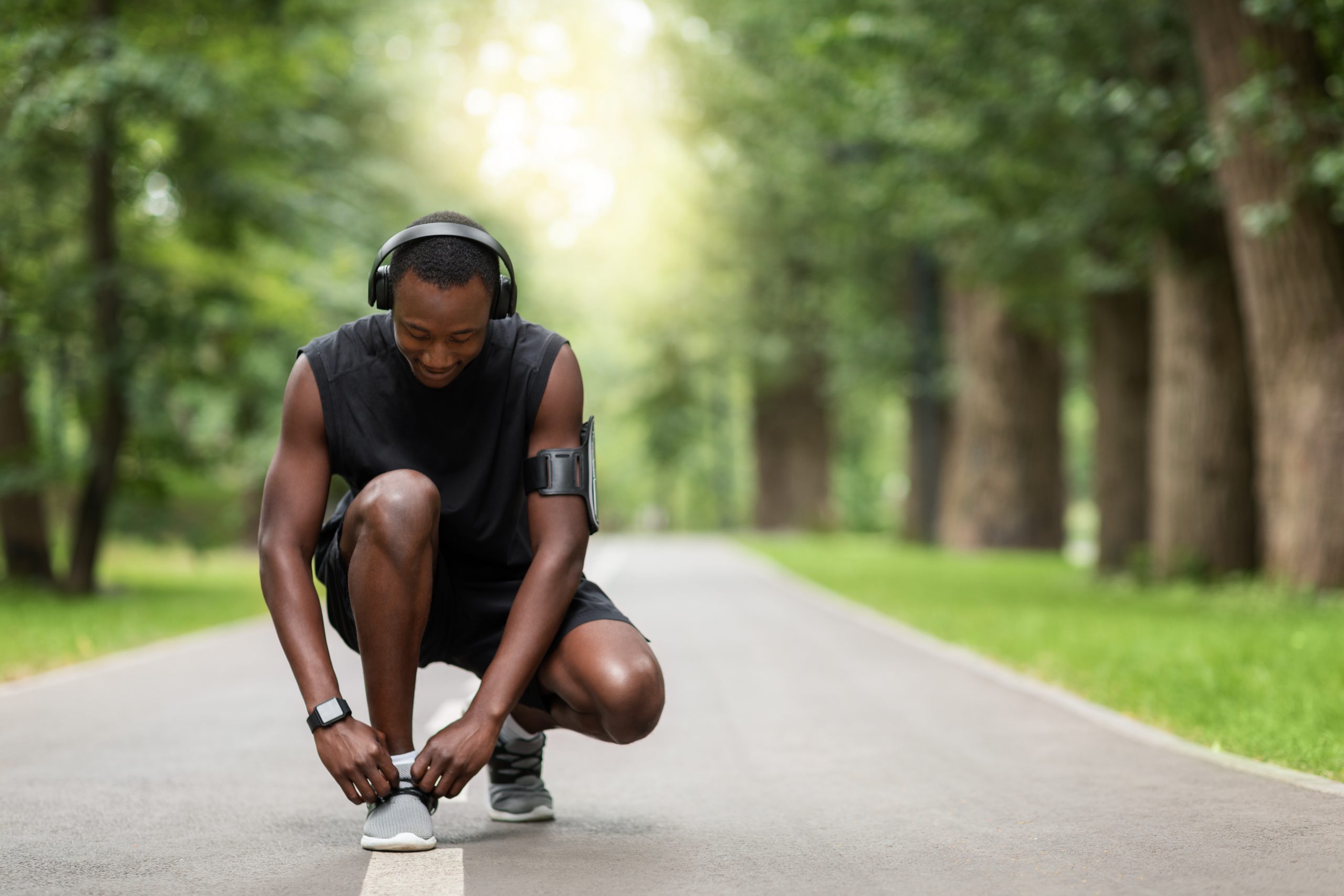
To achieve overall health and well-being, prevent disease, and improve quality of life, the American Heart Association recommends 150 minutes of moderate or 75 minutes of vigorous physical activity per week.6 Additional benefits can be gained by adding strength training at least 2 days per week, and keeping sedentary activities to a minimum.6 If you are new to a fitness program, recovering from a cardiac event or any injuries, you should begin slowly and safely, but increase in intensity, frequency, and time.
There are 3 types of exercise:
- Cardio-for your heart- running, walking biking, swimming
- Strength training for your muscles – lifting weights, bands
- Flexibility for pliability – yoga, stretching
It is key to balance theses, remembering to do cardio-aerobic, strength training, and flexibility training. Don’t overdo it, and don’t do more of one at the expense of the others. There are many ways to engage in each type of exercise. If you find something that you like, you are more likely to stick to it. Find what works for you, make it fun, and you will look forward to the activity as well as reap the health benefits.
An example of the synergy of exercise habits on stress reduction is the effect on the relationship between eating and stress. Emotional eating is a common self-soothing technique that is fueled by too much stress. Engaging in a fitness program decreases that stress. In addition, being more active and fit promotes good health and makes you want to be healthier, and this includes eating healthy. Foods that are high in sodium, fat and sugar aren’t as alluring when you are feeling the benefits and confidence of fitness. This puts you on the path to better strategies to manage life’s challenges and enhance your overall wellness.
Stress management through exercise has synergistic benefits in social connectivity as well. Besides improving body composition, physical activity can greatly benefit your social and emotional health. Firstly, there are many ways to be active with others—participating in classes, going to a gym, activities with family and friends are just a few examples. And the oxytocin release from the shared bonding in exercising together, deepens the desire to stay connected. Secondly, people that train together have greater success of generating the habit over the long term.
The impact of positive hormones and neurotransmitters produced by the brain and body during exercise boosts mood and reduces stress. Feeling good inspires confidence, improved cognition, energy, and the human desire for being with others.
Thanks to the convenience of technology and our modern lifestyles, people in the U.S. are more inactive than ever. If you have a “desk” job or spend hours driving, you are not alone. Sedentary jobs have increased 83 percent since 1950 (according to the American Heart Association). All that inactivity can have a negative impact on your stress levels.7
Besides deliberate physical exercise, ANY regular movement during the day can help create calmness and break the cycle of sitting inertia. Here are some sneaky ways to incorporate movement into traditional sitting jobs:
- Walk during breaks, and use longer breaks to stroll outdoors, whether down the street or laps around the building.
- A midday walk during a lunch break can help the mind to focus on the afternoon’s work.
- Stand during meetings.
- Take the stairs instead of the elevator.
- Walk to talk with a co-worker in person rather than using the phone or electronic messaging.
- Take public transportation to work instead of driving. It likely involves walking to and from the transit stop.
- Use standing or adjustable height desks to avoid sitting while on the phone or at the computer.
- Exercise at your desk, with squats or jumping jacks.
- It does not have to be vigorous. Just stand up and move your muscles.
Technology may have had the unintended downside of too much sitting. But the upside, is that when used judiciously, technology, such as measuring your heart rate (HR) and Heart Rate Variability (HRV), provides an objective index of what’s working best for you to exercise at an optimal level and reduce your stress. More on technology in the next issue!
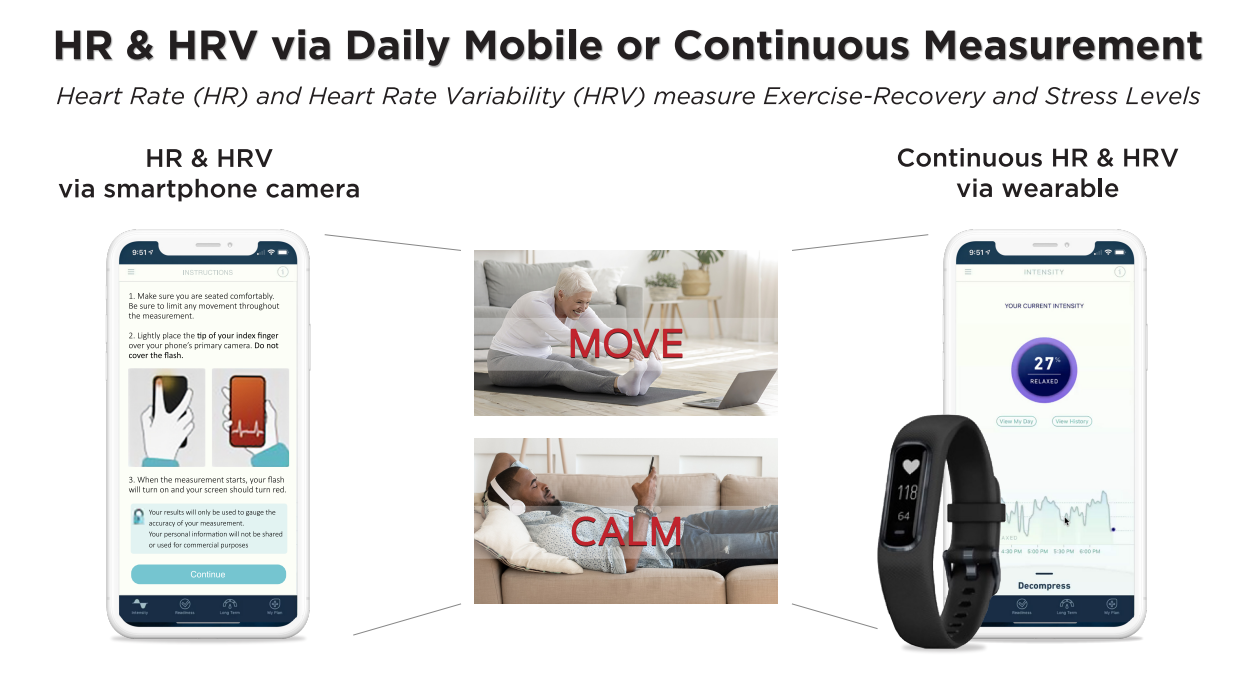
Figure 2. Biometric measurement of Heart Rate (HR) and Heart Rate Variability (HRV) in response to Calm, Move, Eat, Connect training in the ThinkHeart program. https://thinkheart.totalbrain.com/
Bottom line: your body is meant to move. Through movement and physical activity, you can reduce chronic stress, thereby, improving your overall physical and mental health. When something seems too good to be true it usually is, but with the massive benefits of exercise on stress reduction, it just might not be.
References
- Blumenthal, J. et al. (2005). Effects of Exercise and Stress Management Training on Markers of Cardiovascular Risk in Patients With Ischemic Heart Disease. A Randomized Controlled Trial. JAMA, April 6, 2005—Vol 293, No. 13.
- Kris-Etherton et al. (2021) Strategies for Promotion of a Healthy Lifestyle in Clinical Settings: Pillars of Ideal Cardiovascular Health: A Science Advisory from the American Heart Association. Vol. 144. No.24.
- Godman, H. Executive Editor, Harvard Health Letter (2014). Regular exercise changes the brain to improve memory, thinking skills April 9.
- Gordon, E (2022). The Brain: From Knowing To Doing! Regent Press.
- Gordon, E., Palmer, D.M., Liu, H., Rekshan, W., & DeVarney, S. (2013). Online cognitive brain training associated with measurable improvements in cognition and emotional well-being. Technology and Innovation, 15: 53-62.
- Physical Activity Guidelines for Americans (2021). https://health.gov/our-work/nutrition-physical-activity/physical-activity-guidelines
- World Health Organization (WHO). (2020). WHO guidelines on physical activity and sedentary behavior.
https://apps.who.int/iris/bitstream/handle/10665/336656/9789240015128-eng.pdf?sequence=1&isAllowed=y
ABOUT THE AUTHORS
Dr. Evian Gordon is the Founder, Chairman and Chief Medical Officer (CMO) of Total Brain. He founded the largest standardized International Brain Database (over 1 million datasets) to discover what insights and behavioral habits are most effective in stress, mental health, wellness and peak performance. He also founded https://www.totalbrain.com, an online mental health and performance platform to empower users to self-monitor and support self-care of their mental health, wellness and peak performance. Having published over 250 peer-reviewed scientific publications, Dr. Gordon is a Fellow of The American Institute of Stress (AIS) and featured in the Institute’s 2021 documentary, Mismatched: Your Brain Under Stress. Dr. Gordon is a recipient of the inaugural Royal Societies Eureka Prize for Interdisciplinary Scientific Research. He hosts the Total Brain Podcast with key opinion leaders around the world on Behavior Change. Publication details at: https://www.dreviangordon.com/
___________________________________________________________________________________
 Dr. Dunn, PhD, MS, MBA, FAHA is the Program Director for Connected Heart Health and the AHA Inside initiative for the American Heart Association’s new Center of Excellence for Health Technology and Innovation He is a clinical exercise physiologist and health educator with 35 years of experience in cardiac rehabilitation, preventive cardiology and wellness with specific expertise in digital health literacy and digital coaching methods.
Dr. Dunn, PhD, MS, MBA, FAHA is the Program Director for Connected Heart Health and the AHA Inside initiative for the American Heart Association’s new Center of Excellence for Health Technology and Innovation He is a clinical exercise physiologist and health educator with 35 years of experience in cardiac rehabilitation, preventive cardiology and wellness with specific expertise in digital health literacy and digital coaching methods.
LinkedIN: https://www.linkedin.com/in/yourheartscore/
Twitter: https://twitter.com/yourheartscore
——————————————————————————————————————————–
 Jennifer Franklin Fitness and wellness coach for national gym chains. Founder of totallyimmune.com, a website to train people through psychoneuroimmunology to boost their immune system. https://www.totallyimmune.com/ She has a background in communications, multi-media and wellness education. Presented and produced major league sport content for Univision Communications.
Jennifer Franklin Fitness and wellness coach for national gym chains. Founder of totallyimmune.com, a website to train people through psychoneuroimmunology to boost their immune system. https://www.totallyimmune.com/ She has a background in communications, multi-media and wellness education. Presented and produced major league sport content for Univision Communications.
*All 3 authors contributed to the development of the ThinkHeart online “Lifestyle Medicine” course with The American Heart Association (AHA) to enhance Calm, Move, Eat and Connect. https://thinkheart.totalbrain.com/
Contentment Magazine
The dictionary defines “content” as being in a state of peaceful happiness. The AIS magazine is called Contentment because we want all of our guests and members to find contentment in their lives by learning about stress management and finding what works best for each them. Stress is unavoidable, and comes in many shapes and sizes that makes being in a state of peaceful happiness seem like a very lofty goal. But happiness is easy to find once you are able to find ways to manage your stress and keep a healthy perspective when going though difficult times in life. You will always have stress, but stress does not always have you!
